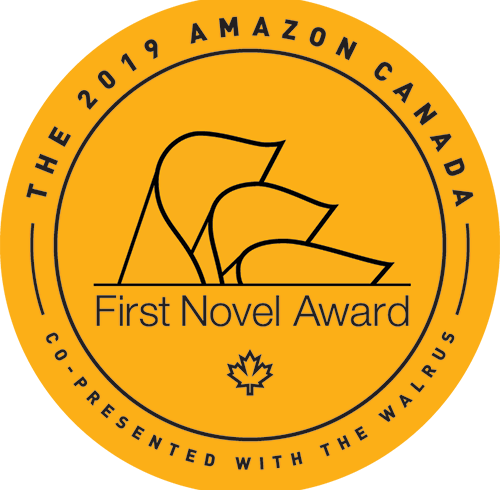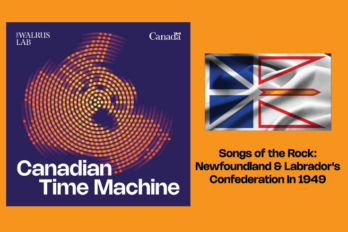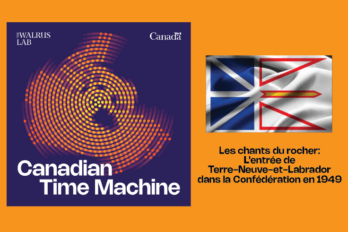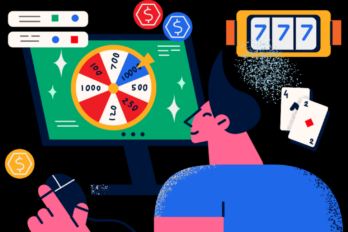 Māmā, as a child living in rural China, did not believe in God. She believed in gambling and studying under the sunlight of oil lamps and carrying cow dung to and from school. She did not believe in saints or capitalism or prophecy. She believed in crops growing to their fullest size, steamed buns made from potatoes, and the cabbage head of Mao. This was their Father—Mao was Father—and all children planted and sown were His children. Generations and generations were destined for greatness and superpowers, destined for fortune and red eyes that held His stars. In the morning, rows of dry houses would birth vegetables into the earth and see which of their children would survive the cold dryness of the soil. Māmā would tie on the only pair of shoes in the neighbourhood and chew sunflower seeds until her teeth fell out. She would walk a few miles to school—snow and fire and ice and freezing rain—and she would stand for the national anthem.
Māmā, as a child living in rural China, did not believe in God. She believed in gambling and studying under the sunlight of oil lamps and carrying cow dung to and from school. She did not believe in saints or capitalism or prophecy. She believed in crops growing to their fullest size, steamed buns made from potatoes, and the cabbage head of Mao. This was their Father—Mao was Father—and all children planted and sown were His children. Generations and generations were destined for greatness and superpowers, destined for fortune and red eyes that held His stars. In the morning, rows of dry houses would birth vegetables into the earth and see which of their children would survive the cold dryness of the soil. Māmā would tie on the only pair of shoes in the neighbourhood and chew sunflower seeds until her teeth fell out. She would walk a few miles to school—snow and fire and ice and freezing rain—and she would stand for the national anthem.
To Māmā, this was what made them—mute children, blind children—into miracles of Mao. And as they sang their red country song, as they gained their sight, they understood. They understood Mao and his country, they understood nationality—but they understood hunger. They were hungry, they had been hungry, and they were born hungry. So they sang for food to fall from the sky and fill their empty stomachs. Such were vegetable children, growing from the earth into mould and malnourishment.
Māmā told me that they walked home in the rain with flour bags on their heads. Māmā told me never to walk under wires or trees or across open fields, because she had smelled burning flesh before. Māmā told me that children would be struck by lightning—electrified for anything to fill their stomachs. Children were so small that they fell into potholes and sewers on their way home. Sometimes they would break their tiny flower necks and forget how to breathe, and sometimes the sun could not hear them call for its rays. And so no one remembers the children who fell into wishing wells or the children who tangled themselves in electric wires and water, the children who did not believe in heaven but believed in Mao and His Forbidden City and His Heaven in the stars on their flag. Mao would cure their hunger—yes, He would. Surely He will.
One day, Māmā’s three brothers went out into the streets to hunt wild birds for breakfast, because they were out of potatoes and out of rice. These brown streets did not have trees or bushes, so wild birds found shelter in the rows of holes in house roofs. Māmā traced the trajectory of a bird taking wing, watched the beetle-eyed birds fall from the clouds as her brothers kicked up dust and screamed like wildfires: dinner! dinner! This was not because they had not eaten or because of their in-grown stomachs—it was simply because they were born hungry. Hungry to kill birds of stone and mist, hungry for wings and flesh and feathers, hungry and hungry twice over. They lobbed pebbles and pieces of bricks that had fallen from well-worn houses. They neglected the ideas of timing and aim. There was an agreement among the brothers: whoever hit the bird first got the stomach and the eyes. Stomach for food, eyes as trophies.
Some of these stones went through the hole in the sky, and some rained back down on the brothers’ heads. Some broke the beaks of sparrows, and the brothers once more called out: dinner! dinner! Some birds tried to migrate south without their tongues and left behind jumbles of feathers. Some birds fell in spirals, others in parabolas. On beautiful days, more beautiful than this day, the birds would wind and twist in bodies of light plumage as no other animal could do. Dogs and cats had always hunted on these streets, scouring the dirt for rats and snakes to swallow. But the birds were grace and splendour. They trilled and flew. And so, Māmā believes, this must have been an execution. Spiralling, spiralling, spiralling, before hitting the earth and dyeing pools of rainwater red and black. Māmā’s three brothers, who had picked up the birds at their feet, began looking for rats and ants, and Māmā is no longer hungry for meat.
The birds are taken back to Nǎinai’s sand house, in which there is nearly nothing but a hay bed, a small kitchen, pots, pans, and a portrait of Mao to lovingly watch over it all. The birds are baptized in water from the well before they’re plucked. The boney feet are fried, and the feathers are stuffed into pillows. As Nǎinai washes their naked bellies, Māmā asks her where all the birds go when they’re eaten. Nǎinai says she does not know. Māmā asks where all the birds go when they’re dead, and Nǎinai says she does not know again.
The birds are gutted and guillotined by tarnished steel, the counter shakes with every slice, and Māmā is too short to see the red that speckles and pools on its surface. “But, Māmā, what happens to the birds when they die?” Nǎinai sighs as the water washes the colour from her hands. “When the birds die, when your brothers kill the birds, we eat them. We eat the birds with water and cabbage, and when we eat them, they disappear. They travel down our throats and into our stomachs and they decompose, and then they come out through our rectums and into the holes in the ground where they are lumps of dirt. That’s what happens to birds when they die.”
Māmā does not understand. She believes that birds eat worms and insects and are killed to end up somewhere better than our stomachs, our holes in the ground. She believes that birds are disappeared by wild cats and untamed dogs and stupid brothers and leave only their eyes behind. Spiralling and spiralling and spiralling. She does not believe humans can kill like God and live on death. She asks again, “What happens to them? What happens to the birds, Māmā?” Nǎinai sighs, dries her aching hands on her checkered, blood flecked apron, fills a pot with water, and sets it to boil. “What does it matter? It does not matter.”
When the water starts to gurgle and spit, Māmā does not ask again what happens to the birds. The heat and steam fill the small room, threatening to cook them all. Nǎinai watches her daughter stare forlornly at the birds as though they have fallen from grace. Nǎinai breathes in and out, and the black jade eyes of the dead birds look up at them both—mirrors, black holes.
“When birds die, they go to heaven.”
“Heaven?”
In this house, with its moths and mouths and useless Mao, the children should at least get to be children. Nǎinai says: “Yes, heaven.”
Nǎinai says that, in heaven, there is no such thing as God. Nǎinai says that no one knows what heaven looks like or sounds like or feels like or smells like or tastes like but that everyone ends up in heaven eventually.
“Everyone?”
“Yes, everyone—birds and children too.”
Nǎinai tells Māmā that some birds die from time—their bodies dry with age; they break apart like old clay. They litter the streets, and workers have to sweep them up and bury them. Some birds die from flying into lightning wires on rainy days. Soon enough, they become rain themselves and water fields of grain.
“And other birds”—Nǎinai tells Māmā—“other birds can never die.”
They are blessed by the moon and remain childish and splendourous and dance in pairs for centuries at a time. They are fire birds that live in the night and sing melodies for the moon and her children. The house takes on the solemn quiet of a temple, and Māmā begins to forget she is hungry.
“Can I be a fire bird?”
Nǎinai smiles as she dunks the bodies to boil.
That night, when Māmā’s three brothers throw themselves to sleep, Māmā imagines a heaven of her own. She imagines that heaven is a place where day and night alike are beautiful and blue and warm. She imagines that heaven tastes like chickens and cows and smells like roses and daffodils and feels like clean clothes without dirt or dust or dry straw scratching through her bed. She imagines that heaven is a place where this sand house is taller and wider, this street a place where birds have nothing to fear.
Māmā falls asleep and dreams she is a dragon in heaven—one who breathes fire and smoke and stars and could never be knocked down by stones or bleed like birds and children could. She dreams of a heaven with apples and shoes and laughter, with silver laced into the clouds. A heaven with fields and fields of rice, where the red sun blesses them all and fills them up. She dreams that she is a fire bird—and so she is.
Māmā becomes a red dragon leaping through the stars, and then she eats the moon.





